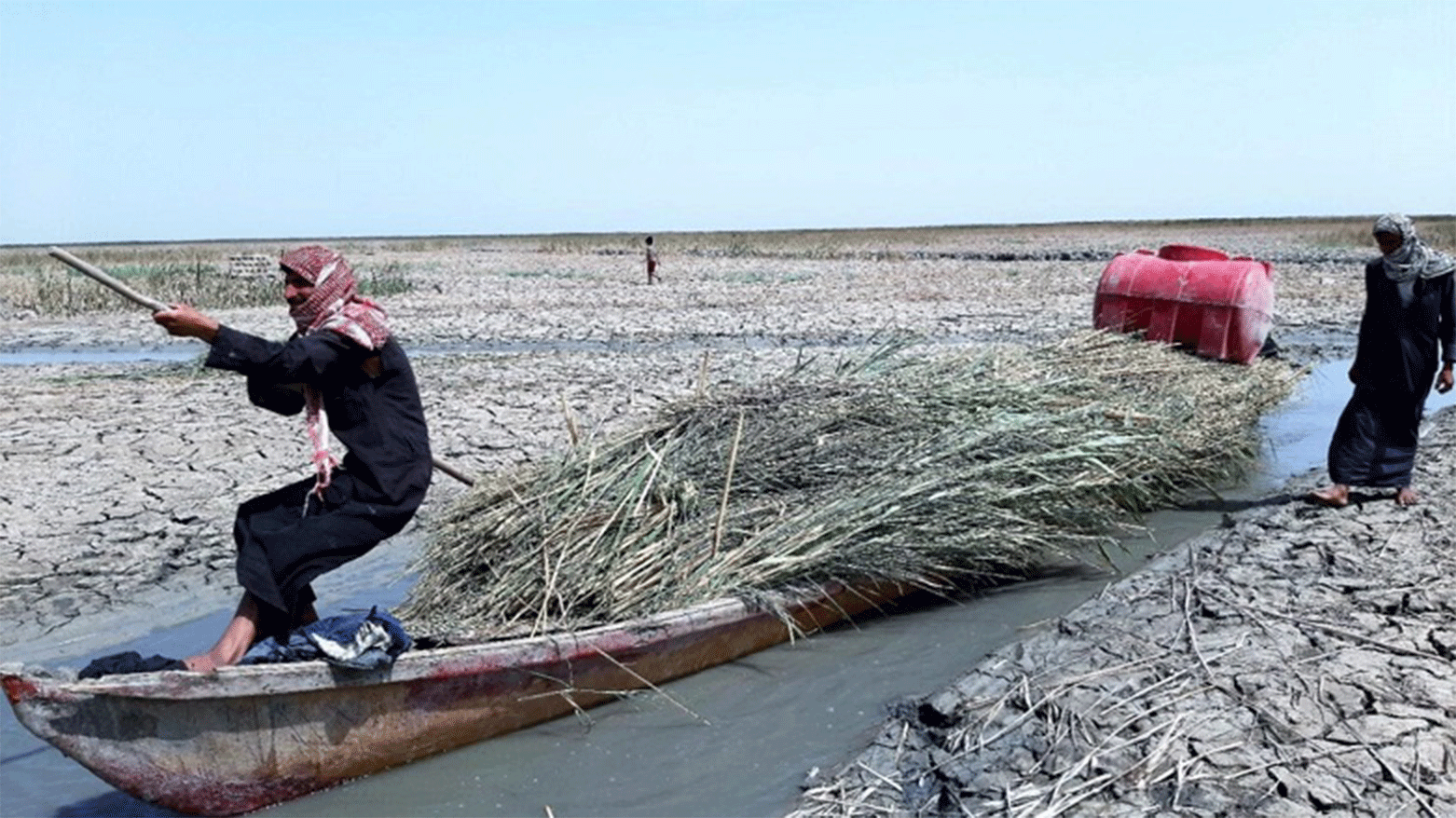Barren Iraqi marshes leads to record migration

ERBIL (Kurdistan 24) – There has been an increase in migration from southern Iraq as a result of a nearly four-year long drought, which has reduced the area of the country's marshes, frequently referred to as the “Mesopotamia Marshes,” to less than 500 square kilometers (sq km).
Drought has become increasingly evident in Iraq, particularly in the south, where swamps that were flooded for years are now dry and deserted.
According to a Friday report by the Abu Dhabi-based media outlet The National, since 2005, the marshes have shrunk from about 4,000 sq km to less than 500 sq km.
The report added that water shortages and droughts in Iraq have thus far destroyed approximately 54 percent of the country's agricultural land, leaving approximately 39 percent of the country's area barren and desolate.
The main reason for the drying up of agricultural land is the salinity of the soil caused by falling river levels and low rainfall.
The marshes, known as the Ahwar in Arabic, are believed to have covered about 9,650 sq km at one point prior to decades of wars and destruction.
Drying up of these marshes has forced thousands of families to flee to the cities, according to the Iraqi Ministry of Environment. Nearly 68,000 people have been displaced from the marshes in 2023 alone.
The marshes, which were listed as World Heritage Sites by UNESCO in 2016, were once known for their rich biodiversity, including numerous species of migratory birds.
High salinity levels have exceeded 6,000 ppm (Parts Per Million), a measure of the density of a given substance in water, in the wetlands, leading to the deterioration of the environment for fisheries and animal breeders. Iraq has recently witnessed thousands of dead fish wash up in the rivers of the marshlands with environmentalists blaming the extraordinary rise of salinity in the water.
The country heavily relies on its ancient twin rivers, the Tigris and Euphrates. Baghdad regularly criticizes Ankara and Tehran for restricting the water flow through upstream damming.
Iraq is ranked by the UN as the fifth most vulnerable country in the world to the adverse effects of climate change.
